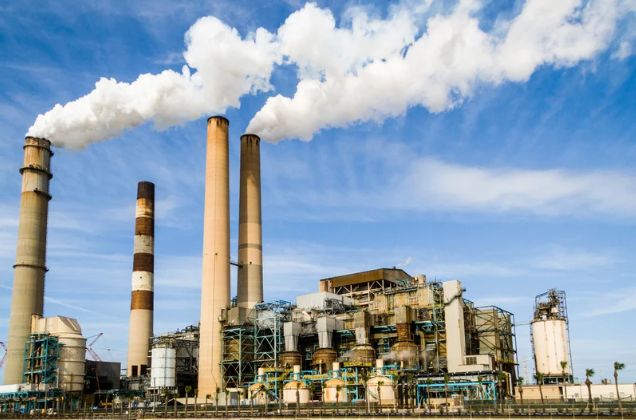Climate Change and Global Inequality
As the world continues to suffer from the effects of warming oceans and more extreme weather, countries are feeling the effects of climate change in vastly different ways. The countries facing the most dangers from climate change are the countries with the smallest carbon footprint: tiny island nations across the globe. With industrial powers like Russia, China, India, and the US leading the world in carbon emissions and questioning the validity of the Paris Accords, these smaller nations seem to be on the brink of extinction through no fault of their own.
In article “A landmark climate change case opens at the top UN court as island nations fear rising seas” by Molly Quell of The Associated Press, the author writes, “Small island nations, especially in the South Pacific, are highly vulnerable to the effects of climate change.” Rising sea labels, caused by global warming from human made gas emissions threaten their survival. Over the past decade, sea levels have risen by an average of 4.3 centimeters globally, with some areas in the Pacific seeing even greater increases. This has led to more extreme weather, loss of land, and damage to ecosystems and livelihoods. Although small island nations contribute very little to global emissions, they suffer the most from its consequences. The International Court of Justice (ICJ) has begun hearing a landmark climate change case, the largest in its history. The case, which started on December 2, 2024, will involve two weeks of hearing to determine countries’ legal obligations in combating climate change and assisting vulnerable nations. The case was initiated by island nations concerned about rising sea levels threatening their existence. The U.N. The General Assembly requested the ICJ’s advisory opinion on climate change obligations in March 2023. While not legally binding, the court’s ruling could set an important precedent for future climate change. The case also addresses two main questions: Countries’ obligations under international law to protect the climate from greenhouse gas emissions, And legal consequences for governments whose actions or inactions have significantly harmed the climate. A panel of 14 judges from various countries will preside over the hearing. This case represents a significant step in addressing climate change through international law and could have far-reaching implications for future climate policy and change.
The global response to climate change has focused on agreements like the 2015 Paris Agreement (also known as the Paris Climate Accords), where countries pledged to limit global warming to below 2°C. However the major polluters like the U.S., China, and Russia have struggled to meet these goals, leaving small island nations highly vulnerable to rising seas and extreme weather. In 2003, the United Nation asked the International Court of justice (ICJ) for an opinion on countries; legal responsibilities for climate change. This case was led by small island nations like Vanuatu and aims to clarify how international law applies to climate obligations. While the ICJ’s decision won’t be binding and it could influence future policies and lawsuits. The efforts to fund climate adaptation have also increased. At the 2024 UN climate summit, wealthy nations pledged $300 billion annually by 2035 to help less fortunate countries cope with climate impacts. Even though this is not close to the $1.3 trillion experts say is needed. These actions highlight the growing urgency for global cooperation to address the crisis.
In recent years, global efforts to tackle climate change have intensified, especially with small island nations leading the charge. In 2023, the United Nations General Assembly requested an advisory opinion from the ICJ to clarify the legal obligations of countries addressing climate change. This historic case, started by small vulnerable nations like Vanuatu, aims to hold massive polluters accountable for their role in global warming and its effects such as rising sea levels. Although the ICJ’s ruling will not be legally binding, it could shape future climate policies and lawsuits. At the 2024 UN climate summit, wealthy nations said that they were going to raise $300 billion annually by 2035 to help poorer countries adapt to climate impacts, like flooding and extreme weather. While this shows progress it is far under the $1.3 trillion experts estimate is required to meet the changing needs. While scientific bodies like the Intergovernmental Panel on Climate change (IPCC) continue to release urgent reports showing the importance that global warming is increasing. The reports show the unreasonable impacts on small island nations and call for immediate action. Despite these warnings major carbon emitters like the U.S, China, and Russia have been slow to meet their climate commitments, which further raised concerns.
The future of small island nations looks uncertain as climate change continues to worsen. Rising sea levels, stronger storms, and damaged ecosystems put their homes and communities at risk. Scientists warn that sea levels could rise up to one meter by 2100, which would make some islands unlivable and force the people to relocate. Without major action to reduce greenhouse gas emissions all these impacts will only get worse. A key legal change is the upcoming advisory opinion from the International Court of Justice (ICJ). Although the opinion won’t be legally binding, it could influence future climate policies and pressure, and big polluters to take stronger action. This could lead to more global efforts to cut emissions and protect smaller nations. But at the same time, small island nations are focusing on solutions to adapt to climate change. Building stronger buildings and infrastructure, protecting coastlines, and switching to clean energy which could help reduce the damage caused by climate change.
References
“Climate Stories: Small Island States.” World Bank, World Bank Group, 12 Apr. 2022, www.worldbank.org/en/news/feature/2022/04/11/on-the-frontlines-of-climate-change-small-island-states-can-lead-in-resilience.
“International Court of Justice Hearings on Climate Change.” U.S. Department of State, U.S. Department of State, www.state.gov/international-court-of-justice-hearings-on-climate-change/. Accessed 16 Jan. 2025.
“The Paris Agreement.” Unfccc.Int, unfccc.int/process-and-meetings/the-paris-agreement. Accessed 16 Jan. 2025.
“A Landmark Climate Change Case Opens at the Top UN Court as Island Nations Fear Rising Seas.” U.S. Department of State, U.S. Department of State, www.state.gov/international-court-of-justice-hearings-on-climate-change/. Accessed 16 Jan. 2025.


